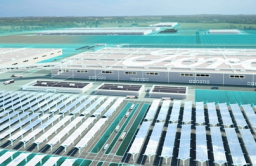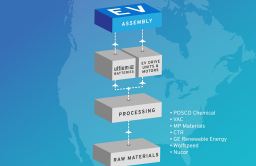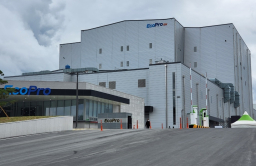-
KOSPI 2812.05 +41.21 +1.49%
-
KOSDAQ 756.23 +6.02 +0.80%
-
KOSPI200 376.54 +6.64 +1.80%
-
USD/KRW 1373 3.00 -0.22%
EcoPro BM to build battery materials plant in Canada
Batteries
EcoPro BM to build battery materials plant in Canada
Korea’s top cathode maker joins hands with Ford, SK On to benefit from US EV tax credit; POSCO Chem may expand Quebec plant
By
Oct 31, 2022 (Gmt+09:00)
4
Min read
News+
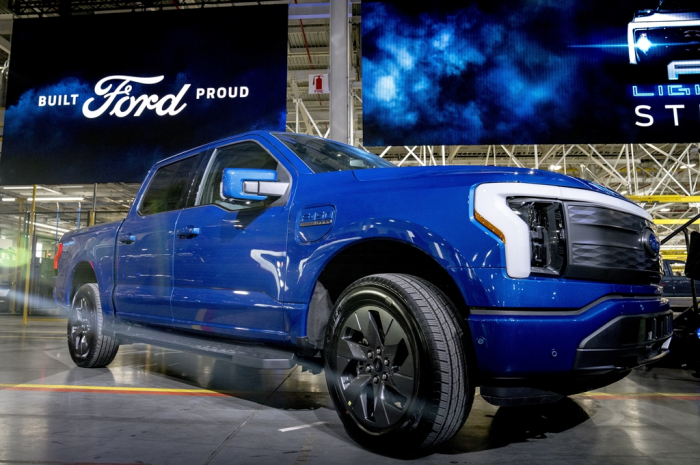
EcoPro BM Co., South Korea’s leading battery material producer, is set to build a plant in Canada with a $704 million investment in a partnership with US automaker Ford Motor Co. and the world’s fifth-largest electric vehicle cell maker SK On Co.
Ford, SK On and EcoPro BM are scheduled to sign a final deal for a cathode factory in Bécancour, Quebec later this year, said battery industry sources in Seoul on Monday. The three companies in July inked a letter of intent to invest 1 trillion won ($703.8 million) in the plant in North America.
They plan to break ground for the facility in the second half of next year, which will supply cathode materials, key ingredients for lithium-ion batteries, to BlueOval SK, an EV joint venture between Ford and SK On.
The cathode plant will be EcoPro BM’s second overseas production complex. The world’s No.2 cathode maker in December last year announced it will invest 970 billion won in building a manufacturing base in Hungary with two production lines. The company aims to start operating the first line in the second half of 2024 and the second one a year later.
EcoPro BM plans to spend 2.8 trillion won in North America and Europe by 2026 for a target of 480,000 tons of cathode materials a year, which is enough for 6 million EVs, to deal with growing demand for the mid-to-long term. The South Korean leading cathode producer accounted for 27.6% of the global high-nickel cathode market in 2020 following the market leader Japan’s Sumitomo Metal Mining Co. with 48.8%.
GREAT LOCATION FOR US EV TAX CREDIT
EcoPro BM aims to proactively respond to the US EV tax credit act that favors cells with parts made in the country or its free trade partners including Canada through the plant in Quebec.
The Biden administration will require a certain percentage of critical minerals used in EV batteries to come from those countries to be eligible for the EV tax credit of up to $7,500 per unit, according to the Inflation Reduction Act. The law is targeting the Chinese EV and battery industries.
Quebec with abundant minerals for battery materials such as nickel was a top candidate for a production base in North America to EcoPro BM, which has been heavily relying on China for minerals and material value chains, a company official said.
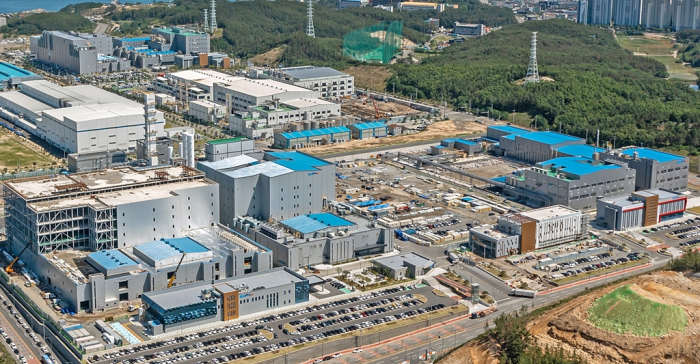
Canada has the world’s second and fifth biggest reserves for nickel and tungsten, while the country’s cobalt production is the eighth largest worldwide. Those ample resources created industries for mine developments, as well as related equipment and services with the country’s mining exports making up some 20% of the total overseas sales in 2019.
Bécancour, which is close to cities on the US East Coast, is well equipped with logistics and industrial infrastructure along with raw material supply chains adjacent to mines. The city in the Centre-du-Québec region of Quebec also has ample water energy for factories, while the government of Quebec is actively attracting foreign companies to develop the secondary battery industry.
POSCO Chemical Co., the battery materials unit of the world’s No. 6 steelmaker POSCO Holdings Inc., and US top automaker General Motors Co. in August broke ground for a cathode factory in Bécancour with a schedule to complete the facility in 2024.
German Chemical giant BASF plans to build a plant for the materials in Quebec and South Korea’s Solus Advanced Materials has been constructing a copper foil factory there.
POSCO CHEMICAL MAY EXPAND QUEBEC PLANT
GM and Ford formed alliances with South Korean makers to dominate the US, the world’s third-largest EV market, by securing battery materials, components and finished products.
Ford in July launched BlueOval SK, while GM joined hands with LG Energy Solution Inc., the world’s No. 2 EV battery maker, and POSCO Chemical. Ultium Cells LLC, a JV between GM and LG Energy, has been producing battery cells since August.
The cathode plant in Bécancour under construction is poised to supply cathode materials to Ultium Cells.
POSCO Group was known to consider plans to establish a battery complex there that covers the whole value chain including mineral smelting, processing and battery recycling. The group has already secured land of 350,000 square meters to build more facilities, according to the Quebec local authorities.
“We have yet to decide on detailed plans for additional factories,” said a group official, though.
POSCO Chemicals, which procures minerals such as lithium and nickel from mines its holding company invested in, plans to smelt and process those materials at its own plants rather than Chinese contractors.
The company aims to quadruple its annual cathode materials capacity to 420,000 tons by 2030 from 105,000 tons this year.
Write to Kyung-Min Kang and Hyung-Kyu Kim at kkm1026@hankyung.com
Jongwoo Cheon edited this article.
More To Read
-
Jul 14, 2022 (Gmt+09:00)
-
Mar 08, 2022 (Gmt+09:00)
-
Dec 10, 2021 (Gmt+09:00)


